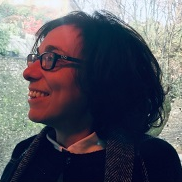Muslims Diaspora in Western Countries
A special issue of Religions (ISSN 2077-1444).
Deadline for manuscript submissions: closed (1 February 2019) | Viewed by 15698
Special Issue Editor
Interests: migration; Muslim in western countries; religion; identity
Special Issues, Collections and Topics in MDPI journals
Special Issue Information
The aim of this special issue is to bring together some of the most up-to-date ground-breaking work on Muslims in Europe, focussing on research data collected since 9/11, which has represented a kind of watershed in the relationship between European citizens and administrations (both at local and national levels) and Muslims.
Dear Colleagues,
In Europe, research and studies have focused on the growing presence of Muslims, through observations and insights carried out from different perspectives: religious beliefs and practices, hope for a certain type of society (laic versus Islamic), definition of identity (religious, national, transnational, cosmopolitan), orientation regarding the education of children and intermarriage and requests made to educational institutions (recognition of holidays, teaching of religion in school). In addition, attention to the religious variable has often been correlated with that dedicated to labour, school, urban schedules and spaces, with specific requests regarding nutrition, places of worship and areas for the burial of the dead. From another point of view, the terrorist attacks added a further perspective of the analysis of this specific group, in an attempt to figure out if its members can become new representatives of fundamentalism in Europe. In this way, the intertwining between Islam and politics is back in the spotlight. The level of the city is the scenario wherein religious identity has been questioned and wherein requests for reprepresentation made by Muslim communities have been widely discussed. Attention was focused, more rarely, on how local policies, from the scope of integration to that of social cohesion, from inter-religious to urban-architectural, have developed and how they have managed the relationship with the plurality of associations which can be traced to the Muslim milieu in each local context. Recently there have come into being a further two elements of interest, that is to, on the one hand, the tragic events in which European Muslims with a migratory background have been involved and, on the other, the arrival on the scene of the issue of asylum seekers and refugees, which are reshaping the attention to the Muslim presence in the European society.
The special issue aims to update the scholarly debate on the current situation of Muslims in various European cities, considering contributions based on both quantitative data and qualitative collected materials, as well as comparing and contrasting what is happening off- and on-line. Priority will be given to contributions covering the following issues:
- relations between Muslim associations and local/national administrations in promoting the recognition of rights (from family legal issues to places of worship, from religious courses in the schools to political involvement);
- the role played by ethnic mosques in the broader integration process;
- religious socialization across generations, comparing and contrasting Muslims with other religious belongings;
- investigating how native Europeans develop their identity in response to/relationship with the Muslim identities of asylum seekers;
- the religious requests made by first and second generations of Muslims at both national and local levels;
- how Muslim associations cope with the phenomena of radicalization and fundamentalism;
- exploring the involvement of young European Muslims in transnational religious networks;
- examining the implications of how Muslims, belonging both to first- and second generations, (re)configure religious arrangements in the context of anti-immigrant discourse.
Prof. Dr. Roberta Ricucci
Guest Editor
Manuscript Submission Information
Manuscripts should be submitted online at www.mdpi.com by registering and logging in to this website. Once you are registered, click here to go to the submission form. Manuscripts can be submitted until the deadline. All submissions that pass pre-check are peer-reviewed. Accepted papers will be published continuously in the journal (as soon as accepted) and will be listed together on the special issue website. Research articles, review articles as well as short communications are invited. For planned papers, a title and short abstract (about 100 words) can be sent to the Editorial Office for announcement on this website.
Submitted manuscripts should not have been published previously, nor be under consideration for publication elsewhere (except conference proceedings papers). All manuscripts are thoroughly refereed through a double-blind peer-review process. A guide for authors and other relevant information for submission of manuscripts is available on the Instructions for Authors page. Religions is an international peer-reviewed open access monthly journal published by MDPI.
Please visit the Instructions for Authors page before submitting a manuscript. The Article Processing Charge (APC) for publication in this open access journal is 1800 CHF (Swiss Francs). Submitted papers should be well formatted and use good English. Authors may use MDPI's English editing service prior to publication or during author revisions.
Keywords
- Diaspora
- Muslim
- Transnationalism
- Representation
- Governance
- Recognition





